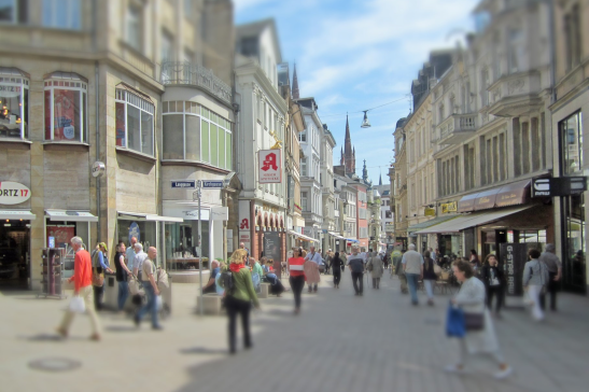What the individual investment promises is what counts
ACROSS: INVESTORS WANT MORE COLORFUL PORTFOLIOS. IS RETAIL, WHICH IS ONE OF THE CLASSIC PORTFOLIO COMPONENTS, A RELATIVE LOSER COMPARED TO LOGISTICS AND HEALTHCARE?
KURT JOVY: In recent years, there has, indeed, been a trend among investors toward logistics properties, which has also made it increasingly difficult to find suitable investments. There has also been greater investor interest and an increasing number of fund offers in the health-care segment. However, the positive expectations have not been confirmed yet, despite the fact that the demographic data suggests that that is the case. A more differentiated view must be taken for the retail sector: Classic retail has recently shown an overall negative trend, while local supplies and the food retail industry have proven themselves to be robust and even gained in importance during the pandemic. At the end of the day, what counts most is what the individual investment promises. Above all, it is advisable to keep an eye on long-term development and to not solely focus on short-term trends.
ACROSS: HOW ARE RETURN RATES AND TRANSACTION VOLUMES DEVELOPING THESE DAYS, AND HOW WILL THEY DEVELOP IN 2023?
JÜRGEN KREUTZ: At present, the market is characterized by uncertainty: The combination the pandemic, a war, inflation, and interest rate turn- around is an unprecedented situation. Accordingly, many investors, especially those with a conservative orientation, prefer to wait and see how the situation develops. Naturally, transaction activity has slowed down as a result. Nevertheless, I am confident about the upcoming year: As soon the price level is stable again and the gap between buyer and seller expectations closes, the transaction market will recover. For 2023, I expect the return of significantly more momentum, including in the high street and other submarkets.
ACROSS: WE SEE A GREATER DIFFERENTIATION IN THE RETAIL REAL ESTATE MARKET BETWEEN TYPES OF COMPANY FORMS AND PRODUCT RANGES. IS FOOD RETAIL STILL KING? WHAT ARE THE MOST SOUGHT- AFTER TYPES OF RETAIL REAL ESTATE, AND WHAT ARE THE ARGUMENTS IN THEIR FAVOR?
KREUTZ: Food retail is an absolutely system-relevant sector – the pandemic has clearly proven that to be true. As a result, there will be little change in the demand for food retail-anchored retail properties in the foreseeable future, which will, of course, keep returns relatively low. Other retail sectors, such as fashion, have been hit hard by coronavirus-related restrictions – in addition to the long-term trend towards higher e-commerce market shares in those segments. Accordingly, in the case of shopping centers, opportunistically oriented investors are currently more interested – in addition to long-term thinking portfolio holders who specifically invest in mixed-use and conversion projects as part of their active asset management strategies. High-street properties, on the other hand, continue to benefit from their central locations. Locations in the heart of our cities are potentially exciting for a wide variety of customers, and institutional investors also appreciate that.

Ansprechpartner
